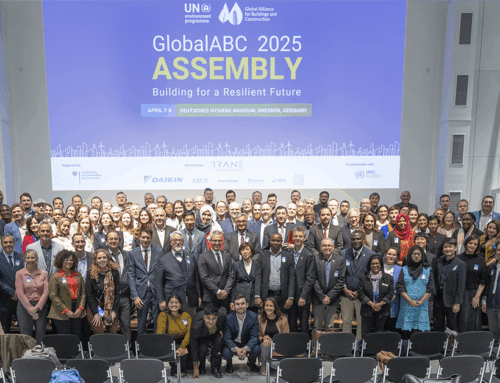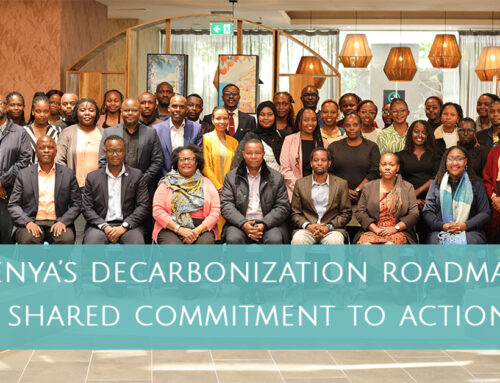Climate change set to have catastrophic impact in our lifetime
We’re no longer trying to prevent climate change – it’s here. And it’s happening faster than we thought possible.
We may be as little as ten years away from a critical tipping point, according to a new report produced by the world’s most authoritative body on climate science, the Intergovernmental Panel on Climate Change (IPCC).
The Buildings sector contributes to more than a third of global ghg emissions. That’s why The International NGO GBPN (Global Buildings Performance Network) supports policy reform to decarbonize the building sector. GBPN is calling for urgent action from governments, with GBPN’s Executive Director Peter Graham saying there is no time to stall.
“We need Governments to include buildings sector climate actions in their Nationally Determined Contributions (NDCs), Non-state actor commitments, and adopt policies that will mandate zero-emissions buildings from 2030,’ Dr Graham said.
“We’re seeing unprecedented fires, floods, sea-level rise and weather events across the globe right now and this will reach catastrophic levels within ten years according to the IPCC’s report.
“The solutions are simple, obtainable and need to be implemented right now if we are to have any chance of arresting this. A temperature rise of 1.5 degrees Celsius over the next decade means living with heat-waves, storms,fires and floods that were previously ‘100-year events’ as the norm.”
The solutions are simple, obtainable and need to be implemented right now
Dr Graham said GBPN could support governments in developing approaches that are proven to be effective and were supported by robust data.
“Governments can confidently commit to achieving net zero emissions by 2050 or sooner. We have the know-how, policy exemplars, and technology to decarbonize the building sector. And we know the benefits of action far outweigh the costs of inaction,” he said.
“Building sector decarbonisation actions are key to achieving mitigation, adaptation and economic development goals. In fact, just two key regulatory measures – building energy codes and energy performance certification – provide a foundation for achieving mitigation and adaptation goals in a number of sectors.
“They establish clear performance standards that encourage finance and investment. When implemented and complied with they make buildings more comfortable and healthier for occupants. And they also have potential to future-proof buildings against the impacts of global warming when implemented with intent to regularly improve performance to achieve near/net zero energy demand..
“Renovating to increase the energy efficiency of existing buildings creates employment. This is also an essential enabler for ensuring cities are increasingly climate resilient.”
New ways of working are needed to achieve real change
Dr Graham said GBPN was actively working with countries in Asia to introduce sustainable building policies that would radically reduce emissions.
“Collectively, India, Indonesia and S.E. Asian countries are already among the largest sources of building sector greenhouse emissions and by 2050 there will be 280 billion m2 more buildings than today — primarily in Asia,’ he said.
“By ensuring these buildings are constructed using low emission materials and manufacturing processes and designed to require less energy to heat and cool, we can radically reduce carbon emissions from the building sector.
“Not doing this is not an option. We must do it. GBPN is calling on all nations to review their commitments ahead of the UN Climate Change Conference (COP 26) in November and ensure strong building policies are included.
“The solution to the climate crisis is reducing carbon emissions. This requires change at a policy level and long-term commitment to implementation. We simply don’t have time to wait.”
Share This Story, Choose Your Platform!
Stay in touch with how we’re transforming the buildings sector
GBPN runs innovative building policy reform programs in key regions around the world that aim to tackle the climate emergency by decarbonising the buildings sector. Stay up to date with our newsletter.
Stay in touch with how we’re transforming the buildings sector
GBPN runs innovative building policy reform programs in key regions around the world that aim to tackle the climate emergency by decarbonising the buildings sector. Stay up to date with our newsletter.







